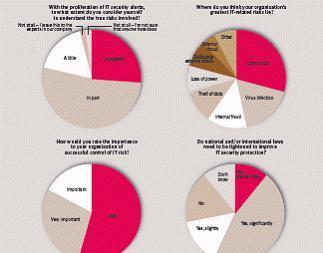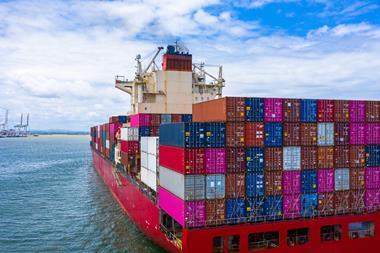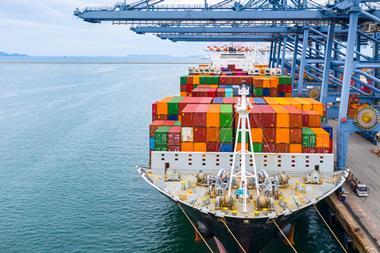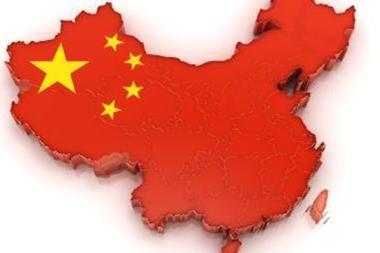Supply chain risk is an issue that most companies are tackling. However, a sizeable minority - one fifth - do not assess their supply chain risks even annually, and only 41% could say that they had suffered no supply chain-related financial loss in the past five years.
Grading of suppliers is relatively widespread, but what do companies base this grading on? Importance to their own production continuity is the most common measure, although 27% said that they did not use this yardstick. And less than half grade suppliers in terms of potential impact upon reputation.
More than a quarter of the respondents audit their key suppliers for risk at least once a year, and 15% said that they undertook audits at least every six months.
Respondents were offered a range of strategies in respect of removing or mitigating supply chain risks and asked to select those that they used. Over three-quarters focused on transferring liability through contracts, with 63% also using insurance as a means of protection. Just over half carry out formal risk identification and assessment. However, less than 50% have an active multi-sourcing policy, although 68% saw the effects of supplier concentration as one of their key risks, coming second only to compliance with regulation and legislation. In addition to the key risks suggested in the survey, some respondents also cited meeting company quality standards and obsolescence.
How far back down the supply chain should companies look in assessing their risks? An alarming 32% of respondents said that they had no information on their suppliers' suppliers, and over a quarter simply did not know. This suggests that many companies either have a great deal of confidence that their direct suppliers are managing their own supply chain risks efficiently or that it may be difficult to obtain this information from those direct suppliers.
The importance of managing supply chain risk was highlighted by the fact that a significant minority of companies are aware of having suffered financial loss as a result of a supply chain problem. While just over 40% of respondents said that they had not had a supply chain-related financial loss in the past five years, 47% had experienced losses, with 21% reporting that these had occurred within the past year. This was a significant increase over the 13% who said that they had had a loss within the previous three years. This may be because companies are scaling down their in-house production in some areas and looking to buy more goods and services in, or supply chain risk management may be deteriorating. Certainly, 57% of respondents could only say that their supply chain risk management was 'average' as opposed to considering themselves fully or strongly protected. An alarming 14% considered their organisation's defences were poor in respect of this risk.
Among the additional comments made by respondents were the following.
- 'We are a developer and our projects are fairly stand-alone. Therefore reliance on few key suppliers is not too much of an issue on a group-wide basis. However, we treat each project as a key profit centre. Therefore on a project specific basis we review the group exposure to our major suppliers as well as any specialist suppliers required for the specific project'.
- 'Supply chain risk management can be not only a driver to avoid financial loss but also a way to make savings, and therefore increase profit, through opportunity management (to be conducted as a single company or in partnership with key suppliers).
- 'This is a difficult area, as you seek to grow and build on partnerships and contacts. You have to balance the desire for trust with practical risk management as the theory is fine but impossible to implement fully'.
- 'Our focus is on high-risk, high-impact suppliers, who are actively managed'.
- 'It calls for collaborative effort along the entire supply chain'.
ABOUT THE SURVEY
- Manufacturing and engineering businesses formed the largest single respondent group.
- The typical company sourced from other EU states and two or three global regions as well as from its own home market.
- In two-thirds of companies, procurement directors are responsible for determining supply chain risk management strategies.



















